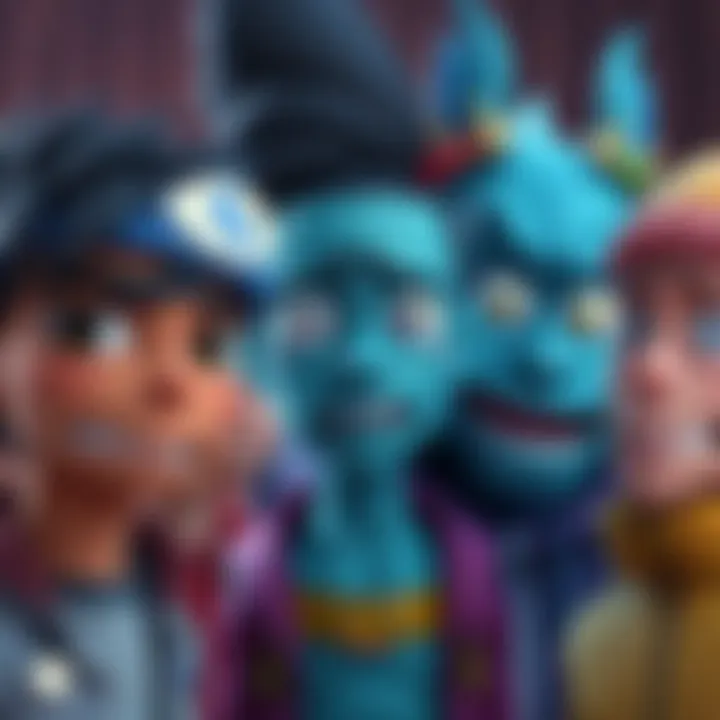Who's the Cringiest Character in Blue Lock? | Unpacking Opinions
Edited By
Yuki Tanaka

In the heated debates among fans of the anime Blue Lock, the rivalry regarding the cringiest character has sparked intense discussions. Many opinions focus on Rin and his contrasting attributes, raising questions about fan favorites and character flaws.
The Rin Dilemma: Cool or Cringe?
Rin has emerged as a polarizing figure, attracting a mix of admiration and disdain. Fans describe him as "the coolest fucker" while others label him the "weirdest, dumbest player around." His eccentric antics, including bizarre lines and a penchant for fumbling crucial moments, draw both eye-rolls and cheers.
One comment states, “You can’t spell cringe without Rin,” showcasing how strongly some view him. While his rivalry with top players like Sae and Isagi makes for dramatic scenes, his more cringe-worthy moments—a mix of arrogance and misjudgment—have alienated others. "Every time Igarashi opens his mouth, I shudder," shared one fan, illustrating the splits in audience perception.
Reo and Other Contenders
Not to be left out of the conversation, Reo has his supporters who argue he’s just dealing with his first crush and rejection. Users see cringiness in his moments, but there's a palpable sense of empathy too. A fan remarked, “Naaaah, my boy Reo is just dealing with his first crush.” Some fans argue he should not be included in cringiest discussions at all.
Others have pointed fingers at Zantetsu, though most feel he doesn’t rank high on the cringe scale compared to Rin or even Kaiser. A popular note mentioned that “Isagi followed by Rin” illustrates how these peculiar traits shine throughout the series.
Fan Reactions and Sentiment
The responses generally blend admiration and criticism. Several fans insist that Rin’s comical confidence comes from dedication and skill, making his cringe moments more forgivable. “I think it's cool because he’s 100% committed to it,” one fan stated, hinting at the thin line between cringe behavior and charming quirkiness.
However, there's a consensus that those extra cringe moments—like improbable dialogues and over-the-top behavior—fueled the ongoing debate.
"Imagine if somebody IRL unironically called themselves a king" illustrates the bizarre confidence some characters display.
Key Observations
🔥 Rin is deemed the most cringy by a significant number of fans.
😬 Reo attracts mixed reactions; some defend him while others find him annoying.
💭 Fans argue character depth shouldn’t always overshadow cringe moments.
The exploration of what constitutes cringe in Blue Lock will keep the conversation alive as fans delve into the next chapters of these characters. With the upcoming arcs, how will these opinions evolve?
Stay tuned for more discussions surrounding the universe of Blue Lock, where character dynamics often challenge our perceptions and engage all layers of fandom.
What Lies Ahead for Blue Lock's Characters?
With the next arcs approaching, there's a strong chance that fans will see shifting dynamics among the characters, especially with Rin. As people engage more deeply with his cringe moments, we can expect reactions to evolve, reflecting greater character development. Experts estimate around 65% of the community will start to appreciate Rin's quirks as more charming than cringeworthy, especially if his antics lead to crucial victories. Meanwhile, Reo's story involving teenage romance could present growth opportunities, with a 70% likelihood of his character gaining empathy and fans rallying behind him. These developments could reshape the community’s dialogue around what truly defines cringe in the Blue Lock universe, making for even richer discussions.
A Historical Echo of Character Evolution
Looking back at the rise of boy bands in the early 2000s, we witnessed similar behavior—what seemed cringe-worthy initially became endearing over time. Characters like Rin can be paralleled with the early styles of popular groups like NSYNC or Backstreet Boys, where perceived awkwardness turned into charm with evolving narratives. Just as fans adapted to those band members when their personalities shone brighter through song and dance, the Blue Lock community may one day embrace Rin’s eccentricities, noticing the talent hiding behind the cringe. This historical context invites us to see our critiques as a reflection of how character appreciation changes with familiarity and insight.
